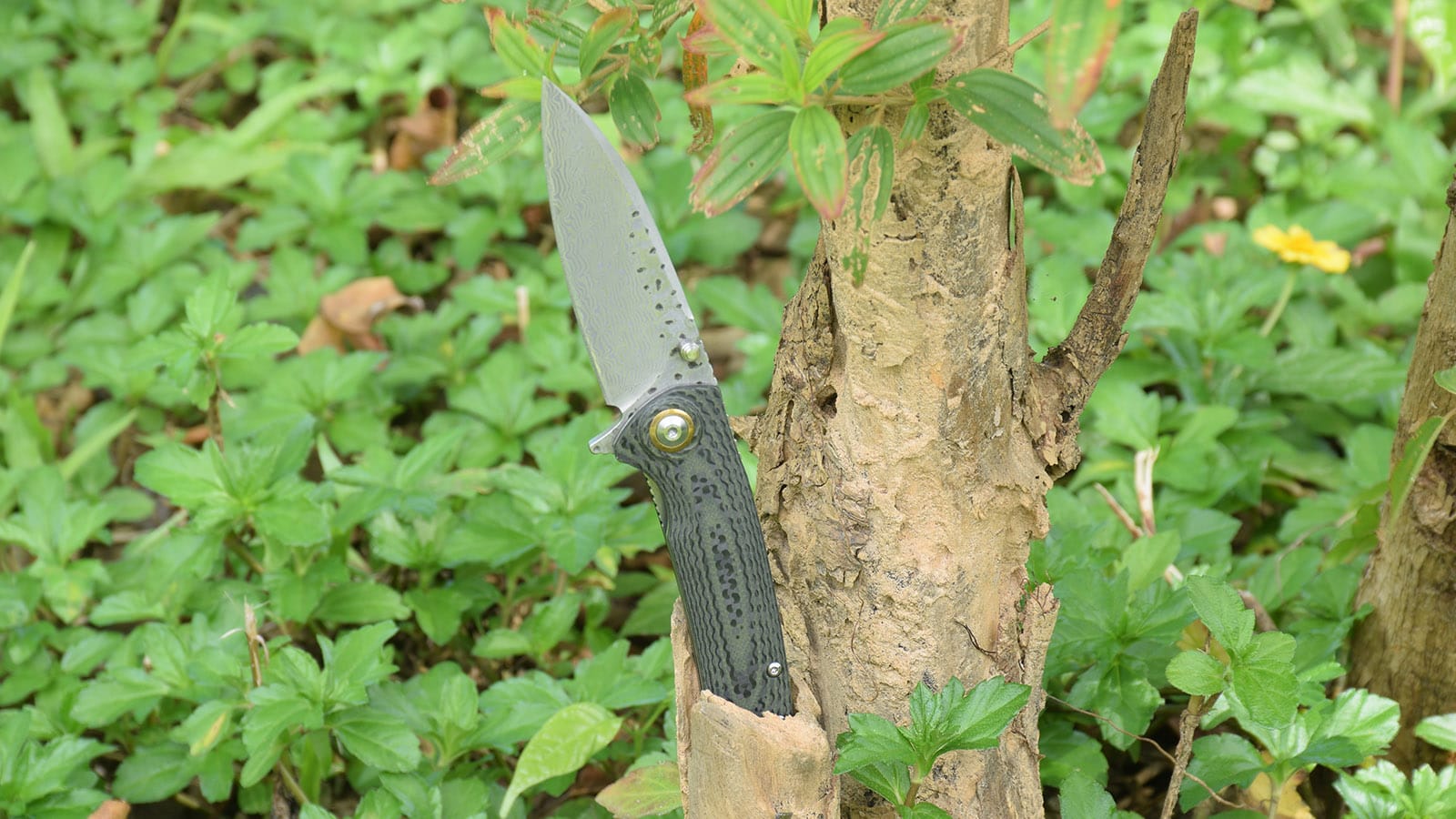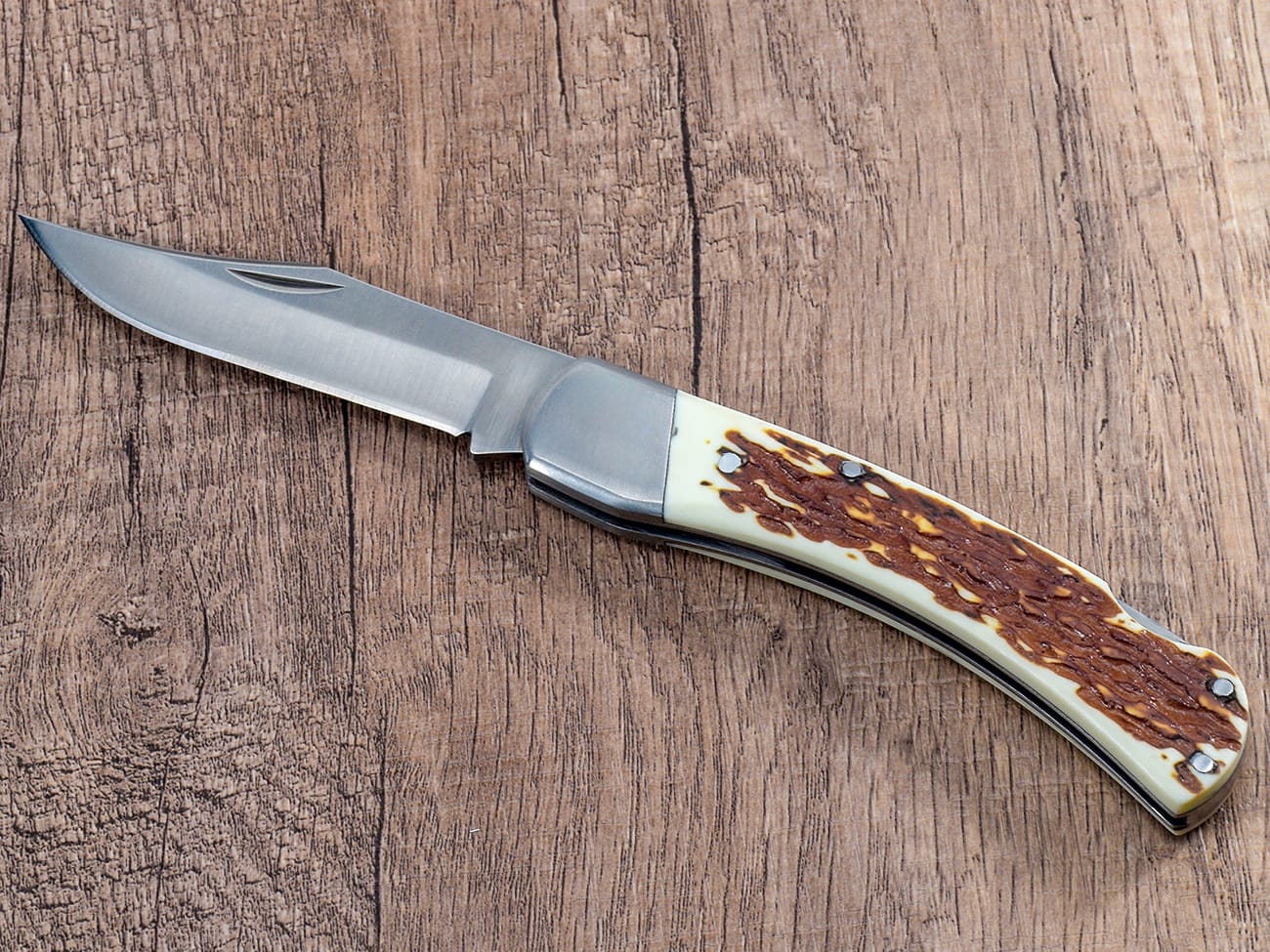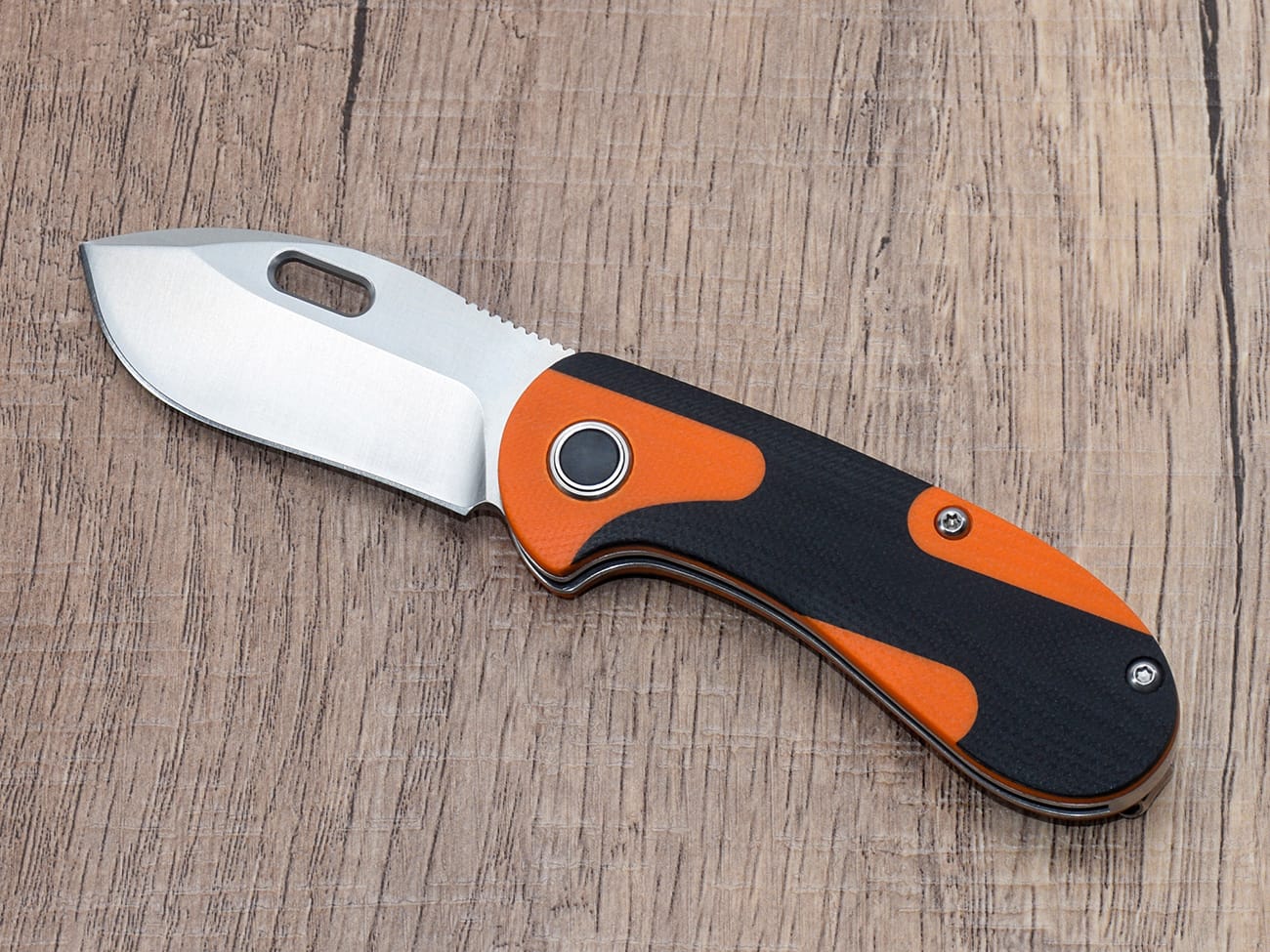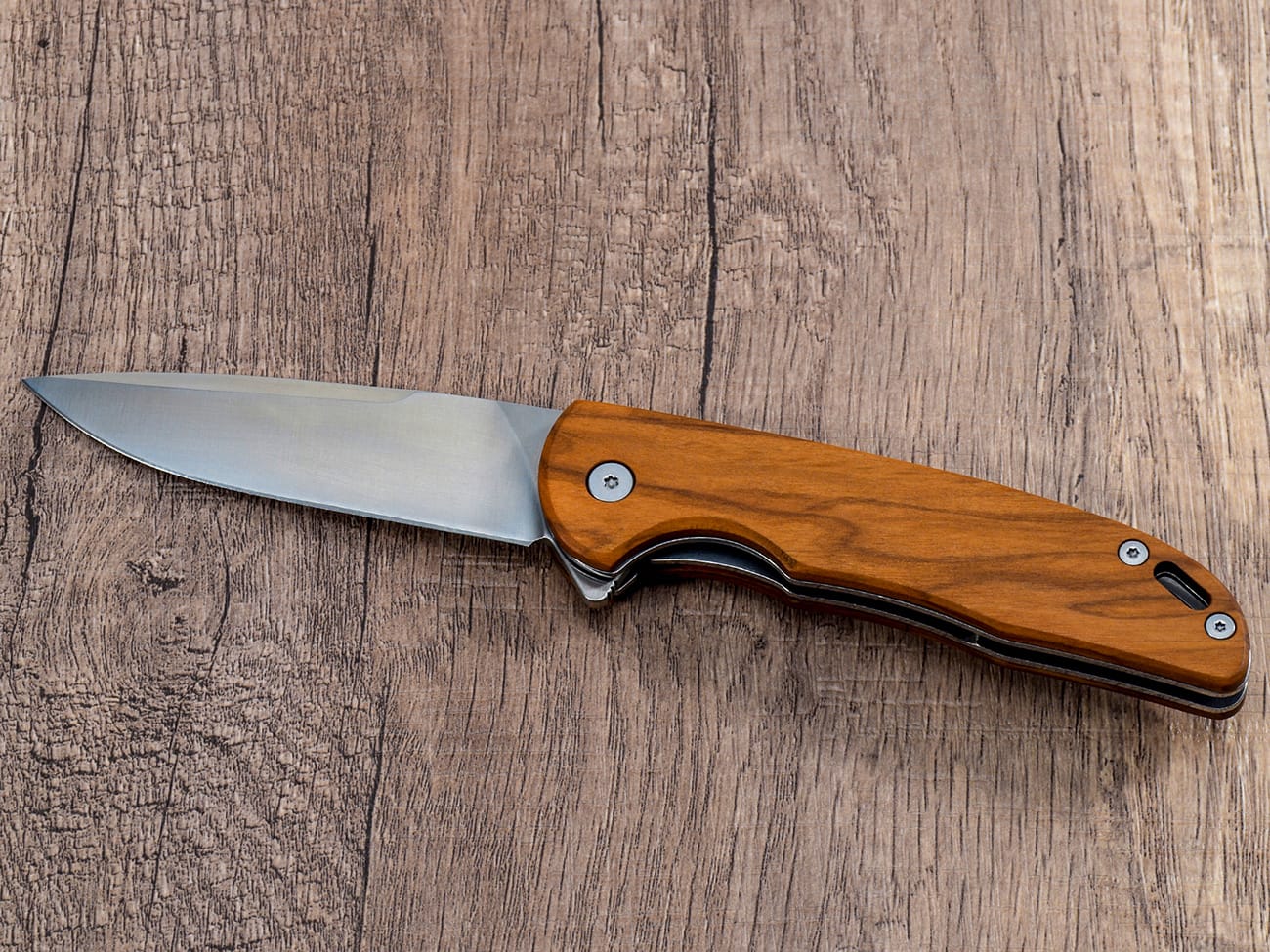Understanding how knife blades interact with colored materials is crucial for both knife enthusiasts and everyday users. This comprehensive guide explores the science behind blade coloring, potential impacts on your knife, and how to maintain your blade’s original appearance. Whether you’re a custom pocket knife collector or simply curious about knife maintenance, this article will provide valuable insights into blade coloration and protection.
What Causes Knife Blades to Change Color?
The color change in knife blades can occur through several mechanisms. The most common causes include:
- Chemical reactions with materials being cut
- Natural patina formation
- Heat-induced color changes
- Surface coatings and treatments
Damascus steel blades are particularly known for developing unique color patterns through oxidation and heat treatment.
Can Cutting Colored Materials Stain Your Blade?
Yes, certain colored materials can temporarily stain or discolor your knife blade. This is especially true when:
- Cutting highly pigmented foods
- Working with artificial dyes
- Slicing through painted materials
- Processing colored chemicals
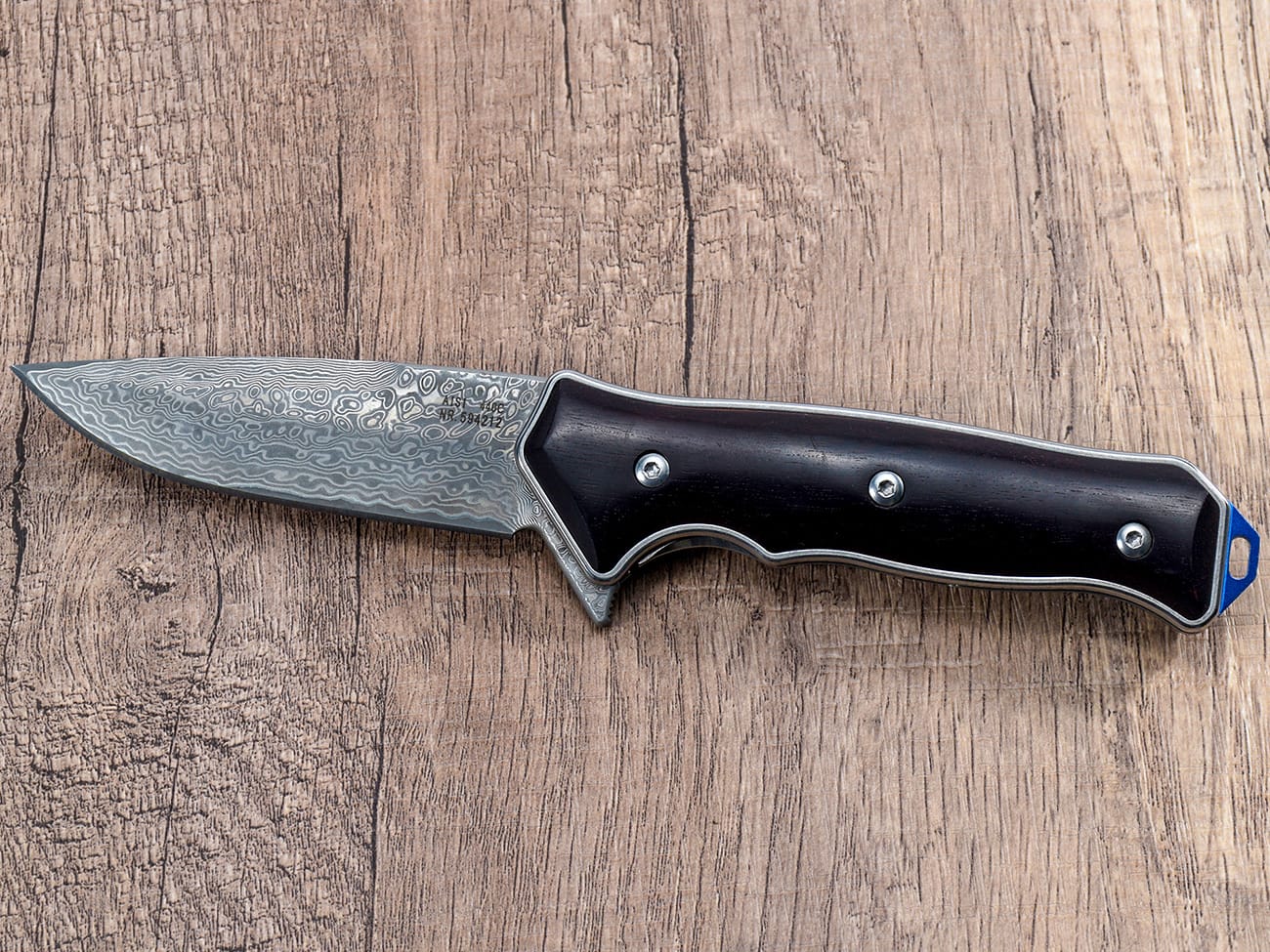
Damascus steel pocket knife showing intricate pattern and color variations
How Different Blade Materials React to Color
Various blade materials respond differently to coloring agents:
- Stainless Steel
- Most resistant to staining
- Easier to clean and maintain
- Less likely to develop patina
- Carbon Steel
- More susceptible to color changes
- Develops natural patina
- Requires more maintenance
- Damascus Steel
- Creates distinctive patterns
- Unique color variations
- Special care needed
Will the Color Change Be Permanent?
The permanence of blade coloration depends on several factors:
- Type of blade material
- Nature of the coloring agent
- Depth of penetration
- Cleaning methods used
Stainless steel blades typically resist permanent coloring better than other materials.
How to Prevent Unwanted Blade Coloring
To protect your knife from unwanted coloring:
- Clean immediately after use
- Apply protective coatings
- Use appropriate cutting boards
- Store properly when not in use
What to Do If Your Blade Gets Colored?
If your blade becomes colored, try these solutions:
- Gentle cleaning with mild soap
- Non-abrasive scrubbing
- Professional cleaning products
- Specialized knife cleaners
Does Blade Finish Affect Color Absorption?
Different blade finishes offer varying levels of protection:
| Finish Type | Color Resistance | Maintenance Level |
|---|---|---|
| Polished | High | Medium |
| Stonewashed | Very High | Low |
| Satin | Medium | Medium |
| Raw | Low | High |
The Role of Blade Coatings in Color Protection
Modern EDC knives often feature protective coatings that:
- Prevent color absorption
- Protect against corrosion
- Maintain blade appearance
- Enhance durability
How Different Colors Affect Blades
Some colors are more likely to stain blades than others:
- Red (moderate staining)
- Blue (light staining)
- Yellow (minimal impact)
- Black (variable effects)
Tips for Maintaining Your Blade’s Original Color
Essential maintenance practices include:
- Regular cleaning
- Proper drying
- Protective storage
- Periodic inspection
Key Takeaways:
- Most color changes are temporary with proper care
- Different blade materials react differently to coloring
- Regular maintenance prevents unwanted coloration
- Protective coatings can help prevent staining
- Immediate cleaning after use is crucial
- Professional cleaning solutions are available for stubborn stains
Remember, while knife blades can be affected by colored materials, proper care and maintenance will help preserve their original appearance and functionality.

